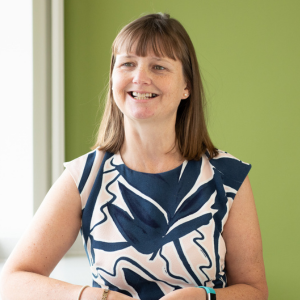Charlotte and Oliver Johnson’s progress from Glebe Farm, a Warwickshire smallholding, to running a Nottinghamshire farm is an inspiration for would-be farmers looking for their break into farming. The couple, both originally from Warwickshire, through a combination of very hard work and a dose of luck, have achieved their goal of finding the right-sized farm to allow them to fulfil their expansion plans and move into organic, mixed farming with fully pasture-fed livestock.
However, it has not been without its testing moments as Charlotte cheerfully admits: moving before Christmas 2019 they faced the task of converting conventionally-farmed arable acreage to organic status during what turned out to be an incredibly wet winter followed by a dry, hot spring.
We have never relied on subsidies
The challenges facing the Johnsons, particularly at a time when British farming is on the cusp of significant change, would be daunting for many. But, as Charlotte notes, they have always been creative in their approach to farming: “Because our previous farm was so small, the subsidies we received were relatively insignificant to our other income streams so we never learnt to rely on them”. Although she admits that, due to the larger acreage of Cedars Farm, subsidies will play a greater role during the transition period, their diversification plans are more critical to the farm’s long-term financial health.
Cedars Farm is part of the Paget Estate, the current owner of which is Joanna Herbert-Stepney, a long-time advocate of organic farming who has put the whole estate into a land trust for the Soil Association. The Johnsons’ organic plans chimed perfectly with Mrs Herbert-Stepney’s principles and they were granted a 25 year lease. In acknowledgement of the considerable amount of work required (not least the need to install almost nine miles of fencing), the estate is supporting their efforts through the erection of a cattle shed plus various improvements to the eight-bedroomed Georgian farmhouse (of which more later).
Farm to fork traceability is critical
The Johnsons’ desire to farm organically was strengthened by conversations with other organic farmers before they moved to Cedars Farm. This meant they did not underestimate the time or investment that would be required before they would be fully accredited by the Soil Association. Although they had not had any arable acreage at Glebe Farm, Oliver, who studied agriculture and arboriculture at college, was able to put his experience of working on arable farms to good use at Cedars where he drilled organic milling wheat and oats as well as beans for the cattle. In addition, he also drilled clover-rich grass ley, an essential component towards the establishment of nutrient-rich pasture for the family’s flock of 320 ewes of mixed breeds and 39 head of cattle. He continues to work off-farm for a couple of days a week to supplement the farm’s income.
The Johnsons will achieve Soil Association accreditation in autumn 2021 when they will be able to start selling both their crops and meat as organic with the price premium that status attracts. For Charlotte, the quality of the food she produces is paramount and her experience of running a successful farm shop at Glebe Farm has reinforced her view that people are increasingly aware of what they eat. She is optimistic that, as more and more is revealed about the standards of animal husbandry and food production elsewhere in the world, consumers will commit in ever greater numbers to buying British and at a premium. As she points out: “Jamie Oliver’s campaign to revolutionise school meals was really important in starting to change people’s perception towards their food. With the horse meat scandal and the current threat of cheap food imports, food traceability from farm to fork, has never been more important”.
Diversification income supports the farm
Although she does not want to replicate the farm shop she ran at Glebe Farm – at least not for now - Charlotte and Oliver are selling lamb and beef boxes. They have a fully operational meat room where the meat is packed (Oliver does some of the butchery but most is done by the abattoir) and sold direct to the public via a sign at the farm gate and social media. They also have poultry, including turkeys for the Christmas market, and eggs which are also sold at the farm gate. But the diversification project currently occupying much of Charlotte’s time is two self-contained holiday lets.
Having dismissed the idea of a B&B, which would have been difficult to juggle with running the farm and looking after two small children, the configuration of the house was such that a two annexes could be created, each with their own entrance, stairway, kitchen and living space, within the farmhouse itself. Charlotte is in the process of putting the finishing touches to the one-bedroom and two-bedroom lets both of which should be available from Christmas onwards. Cedars Farm, based in Normanton on Soar, Nottinghamshire, is close to the county borders of both Derbyshire and Leicestershire, making it an ideal base for those visiting the East Midlands. Given the current travel restrictions and the popularity of farm stays, Charlotte has every confidence that the Cedars Farm lets will provide the necessary financial buffer to help the farm weather the next few years.
The Johnsons’ plans for Cedars Farm are certainly in tune with the government’s vision for sustainable farming. There is evidence of old ponds on the farm, filled in for arable, which could be brought back into life as part of a wider water management strategy, and they intend to replant the hedgerows and trees when funds permit. Hopefully the ELM Scheme will provide the couple with the necessary support to invest in the health of their farm but, in the meantime, Charlotte and Oliver are not letting the grass grow under their feet and are working flat out to make the farm a success.




